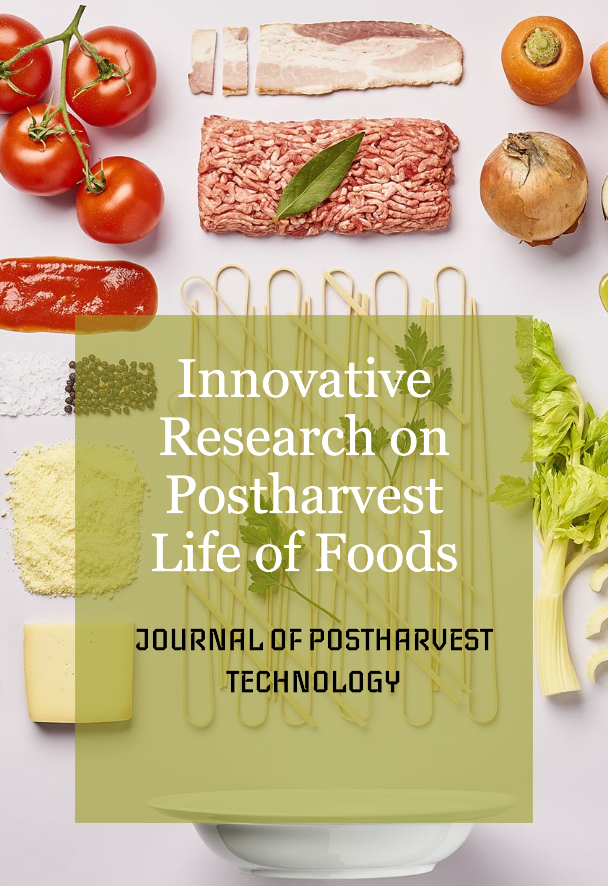Postharvest processing of green banana
Keywords:
Green banana, Value addition, banana peel,, Health benefitsAbstract
India being a largest producer and consumer of banana in the world and its area and production has been increasing at a fast pace, the post-harvest losses of this highly nutritious fruits are quite serious in our country. Generally wastage of this fruit before it reaches the consumer is due to lack of proper processing and storage facilities. Therefore in order to overcome these losses, one effective method would be by converting it into various commercial banana products. India is the largest producer and consumer of banana and it shares about 33.4 per cent of the total fruit production of country. Green banana cannot be eaten as raw, hence further processing is required. Green banana peel contains many medicinal properties and health benefits. About 2.5 per cent of production of banana is processed different types of value added products such as fried chips, dehydrated chips, pulp, powder and green banana peel soups, peel chutney etc. These products are gaining wide popularity in our day-to-day life due to change in life style. The development of value added products in production catchment area will improve the market effectiveness and add extra income to the farmers which will help in enhancing their economic conditions and generate employment for rural youth.
References
Adeniji, T.A.; Empere, C.E. 2001. The development, production and quality evaluation of cake made from cooking banana flour. Global Journal of Pure and Applied Sciences, 7(4):633—635.
Dhake, K.; Jain, S. K.; Lakhawat, S. S. 2019. Value addition in green banana for rural employment generation. Multilogic In Science, 8:48-49.
Fawohunre, A. J.; Adewumi, B. A.; Dairo, O. U.; Sobukola, O. P. 2019. Fitting model for the thin layer drying of plantain (Musa acuminate). American Journal of Engineering Research, 8(8):160-166.
Inyang, U. E.; Oboh, I. O.; Okon, N. B. 2018. Modelling the Drying of Normal and Blanched Unripe Plantain using the Oven Dryer. Journal of Food Technology, 16(1):1-6.
Jha, S. N.; Vishwakarma, R. K.; Ahmed, T.; Rai, A.; Dixit, A. K. 2015.Report on assessment of quantitative harvest and post harvest losses of major crops and commodities in India, ICAR, All India Coordinated Reseach Project on Post-Harvest Technology, ICAR-CIPHET, Ludhiana.
Johnson, P. N. T.; Brennan, J. G.; Addo-Yobo, F. Y. 1998. Air-drying characteristics of plantain (Musa AAB). Journal of Food Engineering. 37:233–242.
Juarez-Garcia, E.; Agama-Acevedo E.; Sáyago-Ayerdi, S.G.; Rodríguez-Ambriz, S.L.; Bello-Pérez, L.A. 2006. Composition, digestibility and application in bread making of banana flours. Plant foods for human nutrition, 61:131-137.
Mohapatra, D.; Mishra, S.; Sutar, N. 2010. Banana and its by-products utilization: an overview. Journal of Scientific and Industrial Research, 69:323-329
Nanda, S. K.; Vishwakarma, R. K.; Bathla, H. V. L.; Rai, A.; Chandra, P. 2012. Harvest and Post-harvest losses of major crops and livestock produce in India, All India Coordinated Reseach Project on Post-Harvest Technology, (ICAR), Ludhiana.
Oforkansi, B. C.; Oduola, M. K. 2016. Mathematical Model of thin Layer Drying process in a Plantain Sample. International Journal of Engineering Research, 5:364-366.
Rodríguez-Ambriz, S. L.; Islas-Hernández, J. J.; Agama-Acevedo, E.; Tovar, J.; Bello-Pérez, L. A. 2015. Characterization of a fiber-rich powder prepared by liquefaction of unripe banana flour. Food Chemistry, 107:1515–1521.
Sangeetha, K. M.; Faisal C. P. M. 2015. Influence of different pretreatments and Drying on Dehydrated Green Banana (Musa paradiasiaca var. Nendran) and its Compatibility in Rusk. Indian Journal of Research in Food Science and Nutrition, 2 (2):56-61.




